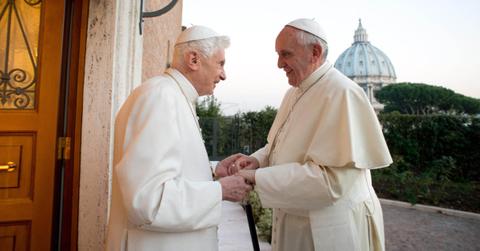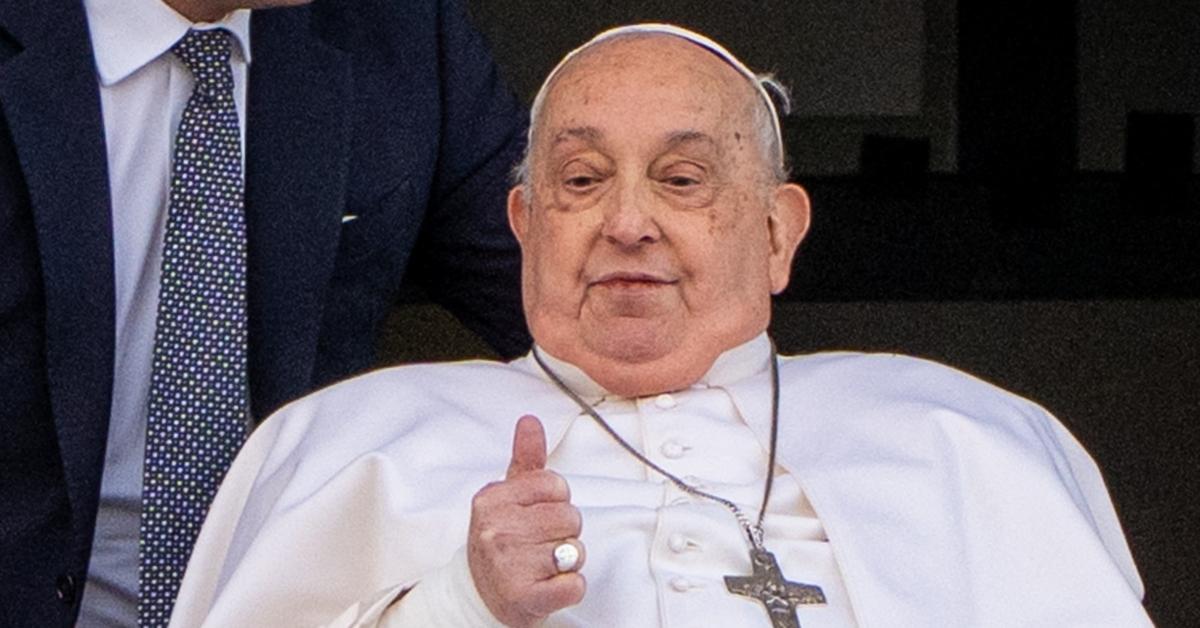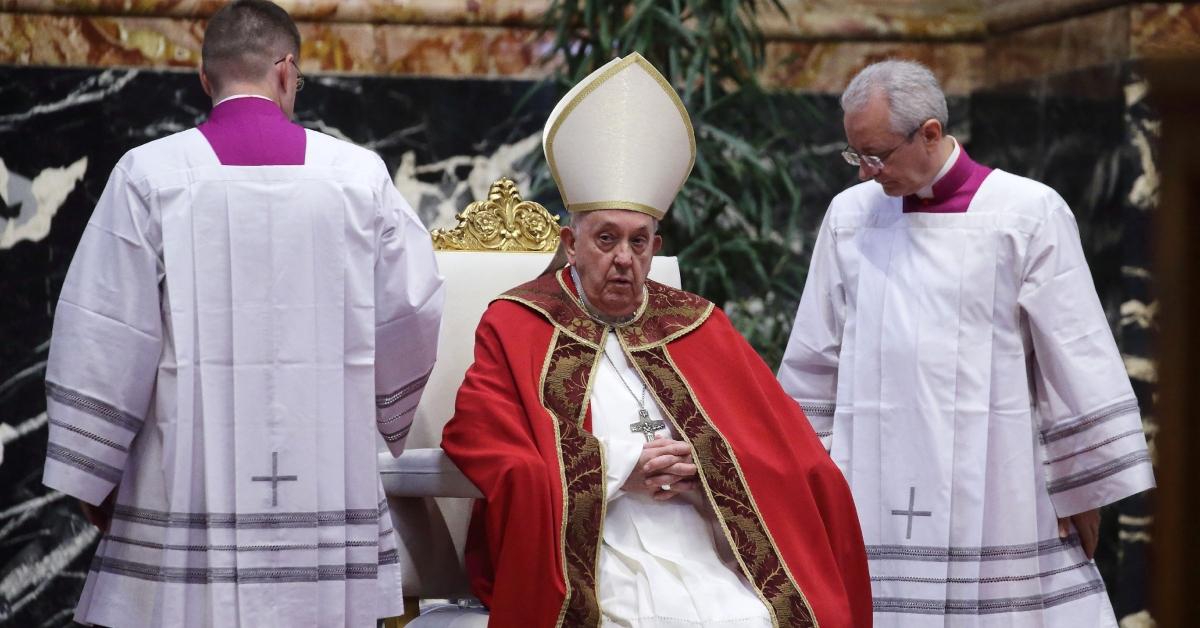Why Does the Pope Change His Name? A Look at the Respectful Tradition
Pope Francis, who died in April 2025, had a radical take on the tradition.
Published April 22 2025, 12:53 p.m. ET

In the Catholic Church, the pope is considered the highest, most prominent face of spiritual leadership, governance, and diplomatic representation. The person selected to obtain the papacy is amongst an elite few who have taken the reigns since 533.
Throughout the Catholic Church's history, there have been 266 popes. The 266 men appointed the position have all sacrificed themselves to get to their position one way or another. However, all of them, at least in the last few centuries, have changed their name to coincide with their new role. So, why does the Pope change his name? Let's find out!

Why does the pope change his name?
Each new pope since the mid-1500s changes their name from their birth, or baptismal name, once they're elected as the pope. According to ABC News, a pope changes his name as tradition. The decision comes shortly after the election, as a ceremonial second question a new pope is asked is, "By what name shall you be known?"
The tradition of a pope changing his name symbolizes respect the incoming leader has for its predecessor. Often the new pontiff's choice of name upon being elected to the papacy is seen as a signal to the world of whom the new pope will emulate, what policies he will seek to enact, or even the length of his reign. Such was the case with Benedict XVI – it was speculated that he chose the name because he wished to emulate Benedict XV, per Catholic News Agency.

Is a pope required to change his name?
Although many popes change their names, including Pope Francis, born Jorge Mario Bergoglio, who died in April 2025 to honor the St Francis of Assisi., per BBC, it's not a tradition that is set in stone. While taking a papal name became more common as the centuries passed, some of the reasons for doing so have less to do with the original purpose, with some non-Italian popes doing so for no more complex a reason than to make it something easier for Romans to pronounce.
Before it was more widespread, popes typically opted to keep their baptismal name. Pope Marcellus II, elected in 1555, was the last to use his baptismal name, with his successor, Giovanni Pietro, honoring the ongoing tradition by choosing the papal name Paul IV.
While most have honored the tradition of naming themselves after their predecessor, Pope Francis didn't want his legacy attached to his predecessor.
Upon his election, Pope Francis chose his name in honor of St. Francis of Assisi, the 13th century cleric now celebrated in the church as the patron saint of animals and the environment. He stated the pope inspired him as "the man of poverty, the man of peace, the man who loves and protects creation." The move was radical at the time. and came after Francis's predecessor, Pope Benedict, stepped down from the papacy in 2013, a decision that had not been made by someone of his station in almost 600 years.